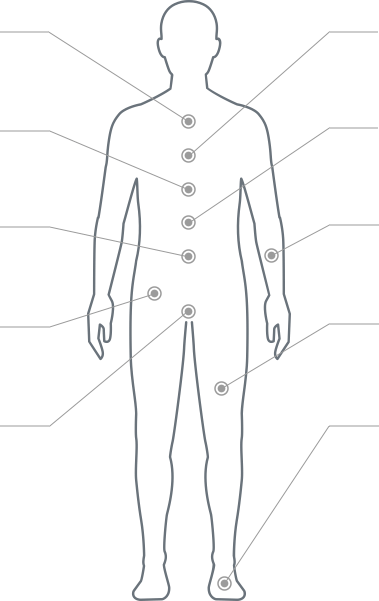
What is Nevro HFX™?
HFX Spinal Cord Stimulation is a nondrug, FDA-approved, treatment option for long-term chronic pain relief.
It’s a small device, placed in a same-day, outpatient procedure, that safely works inside your body to significantly reduce your pain and restore your quality of life.
Why choose HFX

Not a drug or major surgery

Proven to be successful even if other treatment options didn't work

You try HFX first, before you decide
Hear from real patients
Getting started is easy
Do you qualify?
Answer a few questions to find out if you’re a candidate.
Find an HFX-trained doctor.
HFX-trained doctors are available nationwide.
Try HFX, before you decide.
“Test drive” HFX for 1 week with a temporary device.
-
1Do you qualify? Answer a few questions to find out if you’re a candidate.
-
2Find an HFX-trained doctor. HFX-trained doctors are available nationwide.
-
3Try HFX, before you decide. “Test drive” HFX for 1 week with a temporary device.

HFX iQ is easy to use
- You provide your input.
Report your daily pain, medication, and activity levels. - HFX iQ learns from you.
HFX iQ gets smarter over time by learning from your
inputs, preferences, and pain experience. - Your personalized recommendation is delivered.
HFX iQ provides a setting recommendation to optimize
or maintain your pain relief. - You decide.
Choose to change to the recommendation or stay where you are.

Start your research here
Get information about pain management, the 1-week trial, procedure, insurance, and more.






